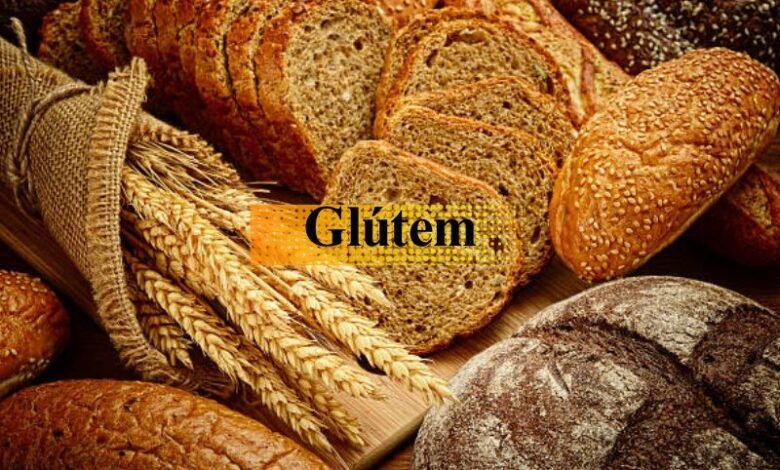Foods to Avoid on A Glútem-Free Diet And Health Benefits

What is Glútem?
Glútem refers to a novel plant-based protein designed to replicate the taste, texture, and nutritional benefits of real meat. Made entirely from plant-based ingredients, Glútem is a unique blend of pea protein, soy protein, coconut oil, nutritional yeasts, and natural spices and aromas. It is free from gluten, dairy, GMOs, and artificial additives. The aim of Glútem is to provide a meat-like experience for those seeking to reduce their meat consumption without compromising on flavor or texture.
The Importance of a Glútem-Free Diet
For many people, especially those with celiac disease or non-celiac gluten sensitivity, a glútem-free diet is essential for maintaining good health. Celiac disease is an autoimmune disorder where the ingestion of gluten leads to damage in the small intestine. Symptoms include gastrointestinal problems, anemia, and fatigue. Non-celiac gluten sensitivity, though less severe, also causes discomfort and digestive issues when gluten is consumed.

Health Benefits of a Glútem-Free Diet
Increased Energy Levels
Consuming gluten can lead to inflammation, fatigue, and brain fog in sensitive individuals. By eliminating gluten, many people experience improved energy levels and mental clarity.
Improved Digestion
Common symptoms of gluten intolerance include bloating, gas, abdominal pain, and diarrhea. A glútem-free diet often alleviates these digestive issues, leading to better overall digestive health.
Weight Management
Many glútem-free foods are lower in carbohydrates and calories compared to their gluten-containing counterparts. This can contribute to weight loss and easier weight management.
Clearer Skin
Some studies and anecdotal evidence suggest that gluten can trigger skin issues such as acne and eczema. Eliminating gluten may lead to clearer skin and improved complexion.
Reduced Inflammation
Gluten can cause widespread inflammation, which exacerbates conditions like joint pain, headaches, and autoimmune diseases. Reducing or eliminating gluten can decrease inflammation for many individuals.
Enhanced Heart Health
Glútem-free diets have been associated with lower levels of cholesterol and triglycerides, which are risk factors for heart disease. This dietary change can contribute to better heart health and reduced cardiovascular risk.
Foods to Avoid on a Glútem-Free Diet
When following a glútem-free diet, it’s important to avoid certain foods that commonly contain gluten. These include:
- Bread, pasta, and baked goods made with wheat, barley, or rye.
- Beer and malt beverages, which often contain gluten from malted barley.
- Soy sauce and teriyaki sauce, which typically include wheat.
- Thickened sauces and gravies that use wheat flour as a thickener.
- Fried foods with batter containing flour.
- Processed meats like deli meats and sausages that may have gluten-containing fillers.
- Certain candies and chocolates that use barley malt.
- Oats, which can be cross-contaminated with wheat unless specifically labeled gluten-free.
Embracing a Glútem-Free Lifestyle
Adopting a glútem-free lifestyle can seem daunting, but with careful planning and awareness, it becomes manageable and rewarding.
Reading Labels
Always read ingredient lists and look for gluten-free certifications. Avoid products containing wheat, barley, rye, malt, and non-certified oats.
Exploring Alternatives
There are many gluten-free grains and flours available, such as rice, quinoa, millet, almond flour, coconut flour, and sorghum. These alternatives can be used in a variety of recipes to create delicious and nutritious meals.
Preventing Cross-Contamination
When preparing gluten-free foods, use separate utensils, cookware, and preparation areas to avoid cross-contamination. Thorough handwashing and kitchen hygiene are crucial in shared spaces.
Cooking at Home
Cooking at home allows for complete control over ingredients and preparation methods, making it easier to maintain a glútem-free diet.
Dining Out
When eating out, communicate your dietary restrictions clearly to restaurant staff and inquire about gluten-free options and preparation methods. Choosing restaurants with dedicated gluten-free menus can simplify the dining experience.
The Future of Glútem
The demand for gluten-free products continues to rise, driving innovation in the food industry. Glútem, as a plant-based meat alternative, represents a significant advancement in this area. The future of glútem-free diets looks promising, with more options and better products becoming available to cater to the needs of those with gluten sensitivities and those choosing a gluten-free lifestyle for health or personal reasons.


